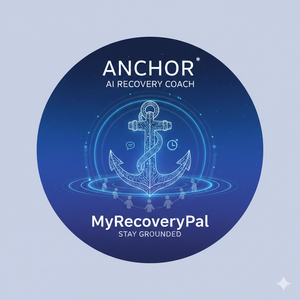
When Resentment Beckons Disaster
In the Big Book of Alcoholics Anonymous, a veteran member shares a powerful insight:
“This bonfire of resentment and rage was beckoning me to pick up a drink and plunge into my death. Then I realized that I had to separate my sobriety from everything else that was going on in my life. No matter what happened or didn’t happen, I couldn’t drink… Sobriety must live a life of its own.”
— Alcoholics Anonymous, 4th Edition, pp. 450–451
Those words cut straight to the heart of recovery: our commitment to stay sober cannot ride the roller-coaster of life’s ups and downs. Whether you’re struggling with addiction, wrestling with anxiety, or just trying to live with more peace, this lesson applies: your well-being must be rooted in something deeper than any external circumstance.
The Danger of Emotional “Bonfires”
Resentment and rage are like tinder; feed them, and they ignite into infernos that threaten everything in their path. In recovery, that fire can become the excuse — or fuel — to relapse. But even outside of addiction, clinging to anger hurts only you:
- Health Toll: Chronic resentment elevates stress hormones, increasing risk of heart disease and weakened immunity.
- Broken Relationships: Harbored rage poisons communication, drives wedges between friends and family, and leaves you isolated.
- Stalled Growth: While you stew, your goals languish. Your dreams go unchased because your mind is trapped in past grievances.
As the AA excerpt teaches, letting that rage dictate your choices (drinking or otherwise) plunges you into a dark path — yet it does nothing to change the person you resent. All it does is steal your own power.
Spiritual Teachings on Resentment
Across major traditions, letting go of anger and resentment is essential for spiritual health:
Christianity (Bible):
- Ephesians 4:31–32 urges, “Let all bitterness and wrath and anger… be put away from you, with all malice. Be kind to one another, tender-hearted, forgiving one another, as God in Christ forgave you.”
Buddhism (Dhammapada):
- “Holding onto anger is like drinking poison and expecting the other person to die.”
Islam (Quran):
- Surah Ash-Shura 42:43 notes that those who “restrain anger and pardon the people — God loves the doers of good.”
Hinduism (Bhagavad Gita):
- Chapter 2, Verse 70 teaches that the enlightened are undisturbed by joy or sorrow, craving or its absence — implying peace beyond emotional extremes.
These scriptures converge on one truth: resentment chains you to the past, while forgiveness and acceptance free you to live fully in the present.
Your “Sobriety of the Soul”: Standing Apart from Life’s Swells
Think of your inner peace as a lighthouse. Storms rage, but its light remains constant. You can cultivate that steady beam by separating your serenity from life’s chaotic tides.
Applying the Lesson to Your Life
Name the Fire
- What to Do: The moment you feel that familiar boil of anger, pause and mentally label it: “This is resentment.”
- Why It Helps: Labeling creates space between “you” and the emotion — making it easier to let go rather than react.
Anchor in a Daily Practice
- What to Do: Commit to a brief daily ritual — five minutes of prayer, a gratitude journal, or a mindfulness app.
- Why It Helps: This non-negotiable time ties your peace to a stable anchor, not to whatever challenges arise.
Practice Detachment
- What to Do: Use a mantra like, “Feelings come and go; I remain centered.” Repeat it whenever worry or anger flares.
- Why It Helps: Detachment doesn’t mean apathy; it means choosing not to let external events hijack your calm.
Offer Forgiveness
- What to Do: Write a letter (even if you never send it) forgiving someone who hurt you, then burn or delete it as a symbolic release.
- Why It Helps: Forgiveness is an internal act of freedom — healing you more than the other person.
Reflect on the Outcome
- What to Do: At day’s end, jot down one instance where you chose acceptance over anger and note how it affected your mood or decisions.
- Why It Helps: Tracking these wins reinforces new neural pathways that favor serenity over resentment.
Let Your Peace Live Its Own Life
Whether you’re ten days sober or simply seeking more emotional resilience, the principle holds: don’t let life’s storms sink your ship. Instead, anchor your inner peace — your sobriety of the soul — in a commitment that transcends circumstances. Let your light shine, day after day, no matter how fierce the winds howl around you.
If this resonated, please 👏 clap, comment your experience, and hit Follow for more on Normalize Sobriety!


Comments (0)
Login to leave a comment.
No comments yet. Be the first to share your thoughts!